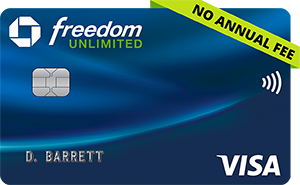Is the Chase Freedom Unlimited® Right for You? A Practical Guide
The Chase Freedom Unlimited® is a popular and powerful credit card, but it is not the right fit for everyone. Understanding whether its features, rewards structure, and benefits align with your financial goals and spending habits is key to making an informed decision. This practical guide will walk you through the key considerations to help you determine if the Chase Freedom Unlimited® deserves a spot in your wallet.
For a comprehensive look at the card's features and its potential as part of a multi-card strategy, read our pillar page on Maximizing Your Rewards with the Chase Freedom Unlimited®.
The ideal Chase Freedom Unlimited® cardholder
The Chase Freedom Unlimited® is best for specific types of card users who prioritize simplicity and consistent rewards.What to consider before applying
Before you apply, it's important to weigh the card's features against your personal needsUsing the card for maximum value
If the card aligns with your financial goals, here is how you can use it to get the most value.The bottom line
The Chase Freedom Unlimited® is an excellent card for the right user. By assessing your own financial habits and understanding the card's strengths and weaknesses, you can determine if it is the best fit for you.Ready to apply?
Chase Freedom Unlimited®

- Intro Offer: Earn a $200 Bonus after you spend $500 on purchases in your first 3 months from account opening
- Enjoy 5% cash back on travel purchased through Chase Travel℠, our premier rewards program that lets you redeem rewards for cash back, travel, gift cards and more; 3% cash back on drugstore purchases and dining at restaurants, including takeout and eligible delivery service, and 1.5% on all other purchases.
- No minimum to redeem for cash back. You can choose to receive a statement credit or direct deposit into most U.S. checking and savings accounts. Cash Back rewards do not expire as long as your account is open!
- Enjoy 0% Intro APR for 15 months from account opening on purchases and balance transfers, then a variable APR of 18.49% - 27.99%.
- No annual fee – You won't have to pay an annual fee for all the great features that come with your Freedom Unlimited® card
- Keep tabs on your credit health, Chase Credit Journey helps you monitor your credit with free access to your latest score, alerts, and more.
- Member FDIC
See Card Terms and Conditions
Related Articles
Found this guide helpful? Bookmark it for future reference as you continue your financial journey!
Experian Boost: A Comprehensive Guide to Boosting Your Free Credit Score
FICO® Credit Scores
FICO® Score Ranges:
- Exceptional: 800–850
- Very Good: 740–799
- Good: 670–739
- Fair: 580–669
- Poor: 300–579
What is a Credit Score?
A credit score is a three-digit number, typically ranging from 300 to 850, that predicts your creditworthiness—how likely you are to repay borrowed money on time. Lenders use this score to assess the risk of lending to you and to determine the interest rates and terms of any credit you might receive.
Why is a Credit Score Important?
A credit score is important because it acts as your financial reputation. Lenders, landlords, insurers, and employers use this single number to quickly judge how reliable you are with money. A higher score helps you qualify for loans and credit cards, often securing lower interest rates that can save you significant money. Conversely, a poor credit score can lead to application denials or much higher costs for borrowing, making it a key factor in your overall financial opportunities.
FICO® Credit Score Facts
- Three-Digit Number: Like other credit scores, FICO® Scores are a three-digit number that summarizes a consumer's credit risk.
- Range: Most standard FICO® Scores range from 300 to 850. Higher scores indicate lower credit risk.
- Data Source: FICO® Scores are calculated using data from your credit reports maintained by the three major credit bureaus: Experian, Equifax, and TransUnion. Your score may vary slightly depending on which bureau's data is used.
- Industry Standard: Lenders rely on FICO® Scores for mortgages, auto loans, and credit cards because they provide a consistent, statistically sound assessment of the likelihood that a borrower will repay their debt.
Note: Credit scores are used to represent the creditworthiness of a person and may be one indicator to the credit type you are eligible for. However, credit score alone does not guarantee or imply approval for any credit card product.
